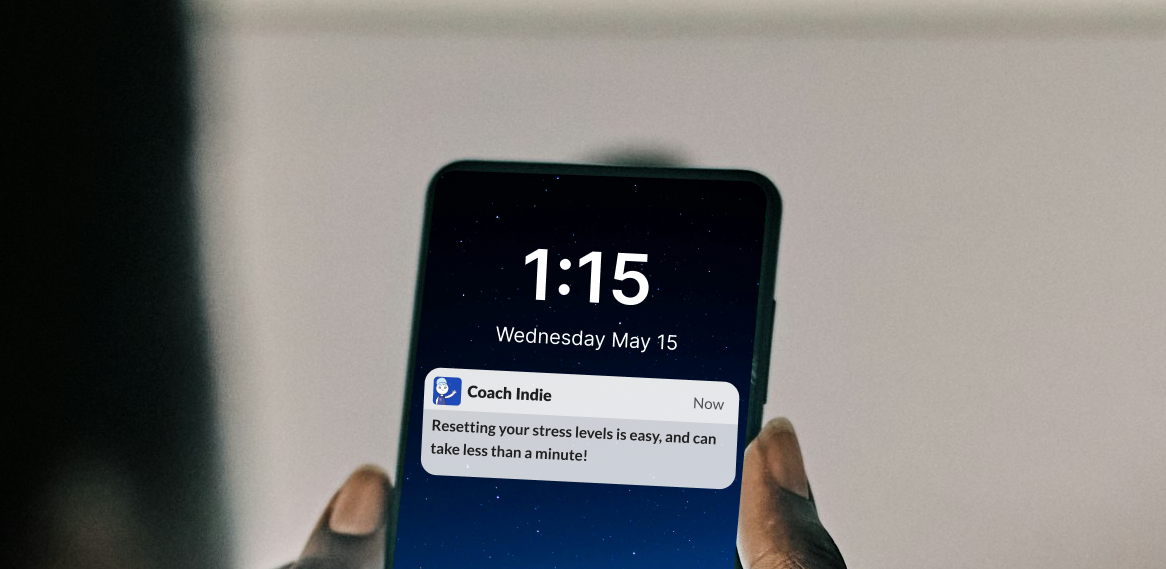There is so much we can learn about stress and resilience from Olympic athletes, especially during times of uncertainty. Their ability to perform under extreme pressure and bounce back is nothing short of inspirational. The good news is, you don’t have to be an elite athlete to build the psychological resilience of champions.
Sports psychology researchers, David Fletcher and Mustafa Sarkar from Loughborough University, interviewed 12 Olympic gold medalists to explore the relationship between psychological resilience and optimal performance. The study found that five psychological factors protect the world’s foremost athletes from the negative effects of stress, helping them build resilience to perform at their best.
In this article, we take a look at the five psychological factors, and offer tips to help you build psychological resilience to better manage stress and achieve your goals in business and life.
On your marks. Get set. Go!
What is psychological resilience?
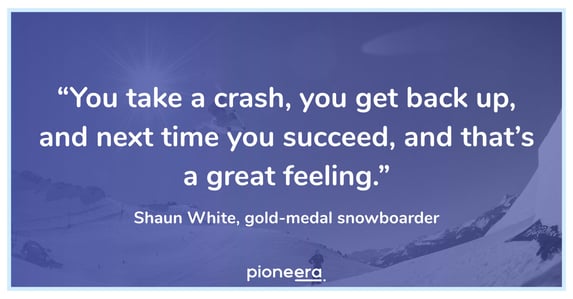
Psychological resilience is the role of mental processes and behaviours to protect an individual from the negative effects of stress. It involves bouncing back from difficult experiences, and often leads to profound personal growth.
A key aspect of psychological resilience in Olympic champions is their ability to use and optimise a group of characteristics that help them thrive under stress. These characteristics fall under five main families of psychological factors that influence how people evaluate challenges.
5 psychological factors:
-
Positive personality
-
Motivation
-
Confidence
-
Focus
-
Perceived social support
1. Positive personality
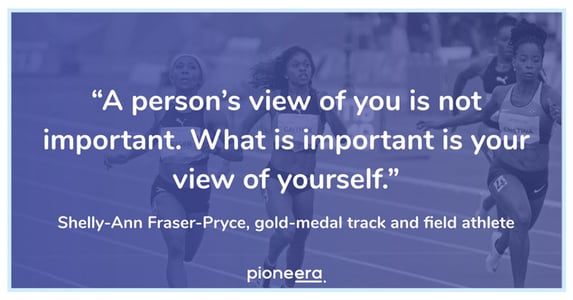
A positive personality helps elite performers identify and act on opportunities in challenging environments, rather than avoid them. Characteristics include being optimistic, conscientious, innovative, proactive, and open to new experiences.
How to be more positive:
-
Practice gratitude in your home and work life.
-
Counter each negative thought with two positive thoughts or gratitudes.
-
Surround yourself with uplifting, positive people and gracefully shift negative conversations.
-
Pay-it-forward and do something nice for someone else each day.
-
Smile, even if you don’t feel like it; it tricks your mind into feeling happy.
2. Motivation
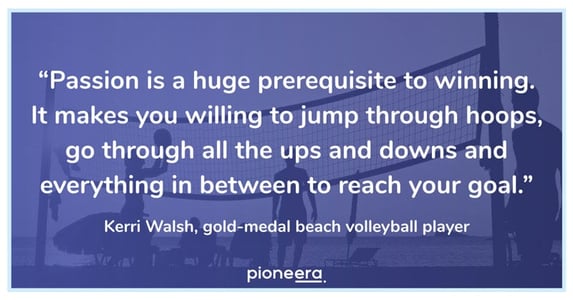
It’s no secret that Olympic champions are highly motivated. It’s consistently reported as a required psychological attribute for elite performance. Motives include passion, achieving incremental goals, social recognition, “being the best you can be”, and proving worth to others.
How to boost your motivation:
-
Regularly remind yourself why you wanted to get motivated in the first place (health, work, family?).
-
Break your goals into small, achievable tasks, set regular reminders, and celebrate achievements.
-
Practice positive self talk - mantras, self affirmation. The key is repetition and relevance to the situation at hand.
-
Find things that interest you within goals that don’t to help you better enjoy “the grind”.
-
Plot your progress so you can see how far you’ve come, and how much closer you are to achieving your goals.
3. Confidence
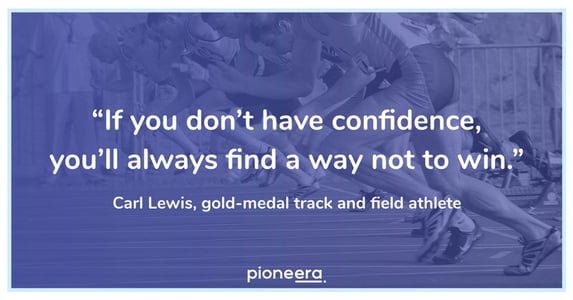
Confidence is a really important factor in building resilience for elite performance. It’s the degree of certainty one has about their ability to be successful. Sources of confidence among Olympic champions include experience, self-awareness, visualisation, multifaceted preparation, coaching and teammates.
How to increase your confidence:
-
Do one thing that scares you every day, big or small, to get out of your comfort zone and try new things.
-
Visualise yourself as you want to be - achieving your goals. Then make your plan to get there.
-
Question your inner critic - “what evidence is there to support the thought that I can’t do this?”
-
Make a mental shift to stop seeing others as better or more deserving than you, and see everyone as equal.
-
Practice self-care - physical, emotional and social health; cultivate healthy eating, sleeping and exercise habits, and present yourself the way you want to feel.
4. Focus
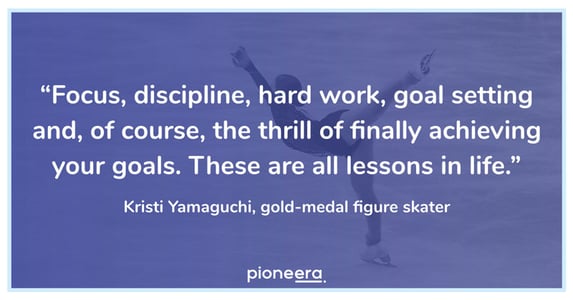
Olympic gold medalists can focus on themselves and not be distracted by others. They can switch their focus on and off depending on the demands of the challenge they’re facing, and focus on the process, not just the outcomes of events. They also acknowledge the need to recharge.
How to improve your focus:
-
Get 7-8 hours sleep per night - stick to a routine that helps you quiet your mind and body at night to enable restful sleep.
-
Meditate for 10 min a day.
-
Set small, daily goals you can focus on and achieve each day to avoid overwhelm.
-
Take regular breaks when working - step outside, eat a nutritious snack, go for a walk, do some exercise, leave your phone on your desk.
-
Plan time to recharge with hobbies, reading a book, catching up with friends and loved ones, volunteer work.
5. Perceived social support
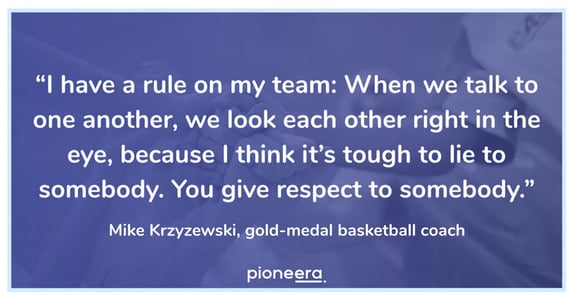
Social support creates a stress-buffering effect that’s integral for building psychological resilience for elite performance. This includes support from family, coaches, teammates and support staff. It’s also important to have an outlet to air grievances.
How to feel more supported:
-
Take the time and effort to support those around you to build a culture of support and reciprocation.
-
Reach out to/find a mentor you can learn from who knows the challenges you’re facing.
-
Have more meaningful conversations to form closer bonds with your inner circle.
-
Be honest with your support network and ask for the support you need, just be careful not to overwhelm them.
-
Discuss professional development options with your boss to create a plan of support to help you achieve your goals.
Final thoughts
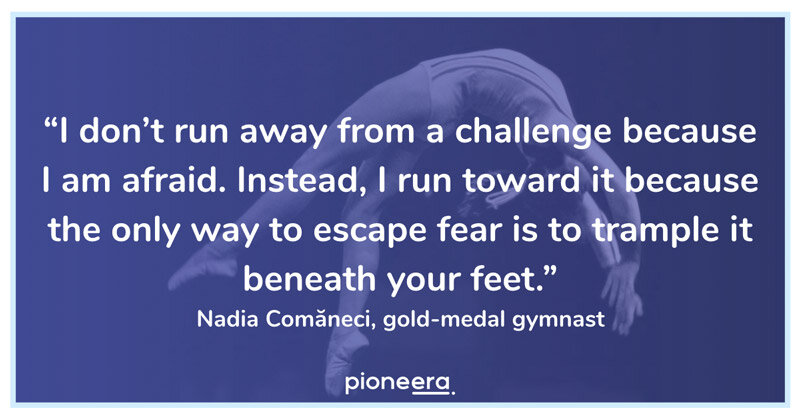
You don’t have to have Olympic aspirations to build the psychological resilience of champions. By focusing on the five psychological factors (positive personality, motivation, confidence, focus, perceived social support) you can build your psychological resilience to better respond to challenges and protect yourself from the negative effects of stress.
Then you’re on your way to achieving your goals and living life to the full.
Are you ready? Go!
Understand and measure stress in real-time to build resilient, high-performing teams with Indie by Pioneera.




